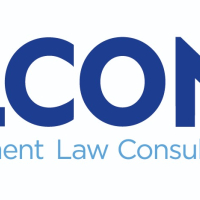Is it time to put some Credit Control into your business?
It’s a well-known fact and fear by most business owners, that to stay in business cash flow must be maximised and bad debt minimised.
It can be very easy for late payments to start having a negative impact on trading so it’s important to put some serious thought into how payment terms are managed and how you’ll deal with late-paying clients.
So what are effective payments terms? And when a client doesn’t pay you on time, what do you do? The answer is to have a defined proactive credit control and debt management process in place.
Whether you are a newly established business or one that has been around for some time, it is always worth reviewing the signs that credit control in your business needs better attention?
Sign: Your clients are taking advantage of your good faith and lack of credit control and allowing their bills to go unpaid. Some have debts that are out of control. There is a real risk of bad debt occurring.
Sign: There is confusion around when payments are actually due and your clients are using this as a good excuse to delay payments.
Sign: You’re experiencing poor communication with a client who is frequently late with payments.
Sign: You are lax on chasing payments or your team is too busy to deal with late payments.
Sign: A client is defensive and elusive when talking about what they owe you.
Sign: Habitual late payers are putting a strain on your business and time.
Sign: You keep receiving broken promises of when payments are expected or cheques have bounced.
A good credit control process, consistently adhered to can ensure these problems are reduced, if not eliminated. A good client will respect things like regular statements and direct conversations on late payments.
Here are some pro-active ways to ensure your business is adopting good credit control procedures.
A credit check: Like a properly constructed application form you would use for a new recruit, a credit check will help gather important background information on the person or business you’re about to start working with and can help you decide essential factors such as what credit limit to set or even whether you should avoid doing business with them altogether.
Clear terms and conditions: Setting formal terms and conditions tailored to your business and to which your clients have to sign or acknowledge will give you better leverage if there is any misunderstanding on payments terms.
Make sure your invoices clearly state the expected ‘payment due date’ as well as reiterating agreed payment terms.
Check references: Sometimes clients look good on paper and will still cause you trouble when it comes down to the nitty gritty. So it seems sensible that the best way to learn about the new client is by talking to other business associates that have dealt with them in the past. If they seem happy to sing your contact’s praises, it’s definitely a good sign, right? Well actually – that’s not always the case. Taking the time to get a credit report or background check on the company providing the reference will give you the full picture, e.g. you may find that they are in fact related through a large group structure or a common director.
Have a formal credit agreement in place: Offering credit can be an effective way to increase trust and strengthen a client relationship and is often a necessity for your client in managing their own cash flow. If you do offer credit arrangement, set a limit that’s right for your business and not the maximum suggested on a credit report or requested by the client. Have a formal credit agreement alongside your T&C’s in place. Ensure it is signed by the client and clearly states the credit limit, when payments will be expected and what happens should a credit limit be exceeded.
Always stick to the limit you have set and if it is exceeded make sure the excess is chased promptly or a stop is put on the account until payments have been received. When necessary reduce the credit limit before the client sees you as a soft touch and decides to take advantage.
Chase payments: When it comes to chasing payments, a system that is managed right and like clockwork will help avoid everything from late payments to disputes over services provided.
Your clients will appreciate things like regular statements and direct contact as soon as there is an issue. Clients who do not adhere to payment terms will be left in no doubt that you intend to get paid.
A basic credit control process will include the following:
- Regular statements showing all outstanding invoices (not just the ones overdue)
- A phone call to the client as soon as an invoice becomes due with a follow up again at minimum seven day intervals once there is an amount overdue.
- Pre-empt excuses for late payment by knowing when a client does their pay run and phoning just prior to ensure their invoice has been included on the next run.
- Don’t ignore continued late payments or non-communication; don’t hesitate to strictly enforce a credit limit and T&C’s.
- If a client still refuses to settle their account, don’t put off seeking outside help. There are many ways to successfully pursue a debtor and the quicker it’s done the better chance of recovering the debt without the need for legal action, which may not be successful.
Keep Records: Good record keeping will make all the difference in the event of trying to recover a debt; records of phone calls, emails and written letters are vital. Take minutes of any face to face discussions and immediately follow up in writing a summary of the key points agreed.
Use the functionality of your accounting software to automate and record communication, such as recording when statements have been sent and send invoice reminders. As well as keeping an audit trail it will also reduce admin time so it is well worth taking time to understand and use it.
Save bounced cheques for use as evidence and deal with any queries ASAP to keep your side of the business clean.
Conclusion
By proactively applying robust credit control procedures you will reduce late payments and ensure a positive cash flow position without additional cost of admin time and legal fees.
We hope you can see the intrinsic value of putting credit control at the heart of your financial function.
Labour’s new Employment Rights Bill: challenges employers...
More Articles
The Value of a Sustainability Strategy in the Tender Process
Unlocking the Power of Raw Financial Data
Would you like to promote an article ?
Post articles and opinions on Professionals UK
to attract new clients and referrals. Feature in newsletters.
Join for free today and upload your articles for new contacts to read and enquire further.







